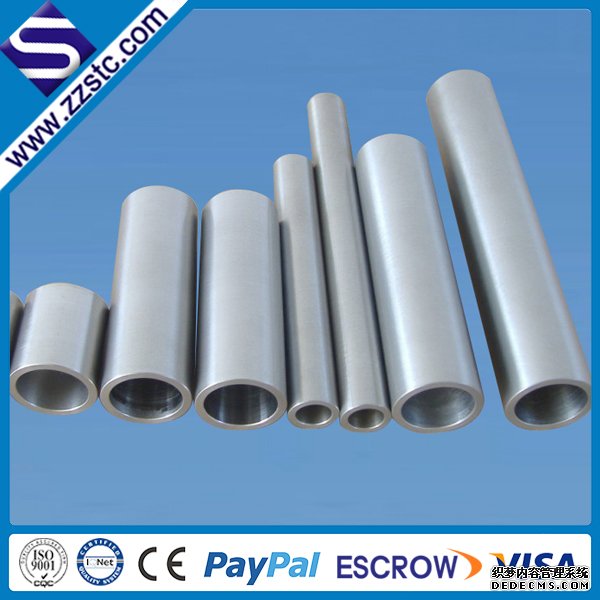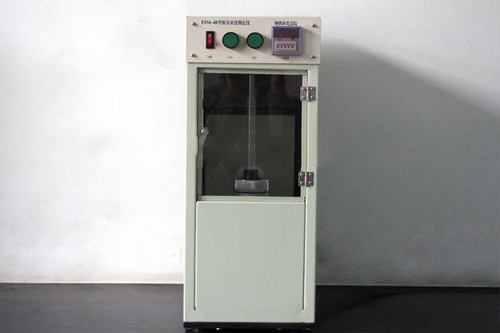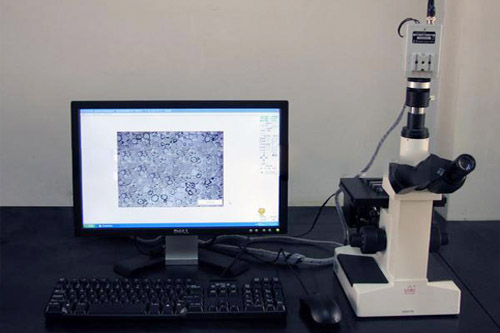Main measures to prevent contamination of titanium alloy
Titanium is highly active metal, and its activity increases with increasing temperature. Titanium and its alloys will have reaction with oxygen when they are heated in air. A layer of protective film is formed at the time of heating below 428 degrees, the temperature is increased, the thickness of the oxide film is increased, at the above 538 degrees, the oxide film begins to lose the protection function, if it rises above 815 degrees, the titanium alloy surface forms a layer of loose oxide skin.
The role of hydrogen and titanium alloys is related to the heating temperature and time. When the temperature is less than 427 degrees, if the alloy surface has a layer of oxide film, it can resist the inhalation of hydrogen, and when the temperature is more than 427 degrees, the hydrogen began to enter the alloy through the oxide layer. The influence of hydrogen on the performance of titanium alloy is directly related to the microstructure of the alloy, since the solubility of hydrogen atom in the beta phase is much larger than that in the alpha phase, the number and shape of the beta phase of the alloy is one of the main factors to determine the degree of hydrogen pollution.
In order to prevent the contamination of titanium alloy in superplastic forming, technical measures should be taken to make the formed titanium alloy parts have excellent properties. At present, the main measures are: coating protection, vacuum heating and inert gas (argon) protection.
1. Coating protection method
After the forming blank surface is cleaned to coat with a protective coating with a certain thickness, after the parts is mold unloaded to have alkali wash, then using the methods of acid washing or sand blowing to remove the coating.
The coating materials should have the following main properties:
A. High temperature resistance, it can be used at high temperature of 750 to 1050 degrees.
B. It should have a certain role in lubrication, to prevent the blank from scratching in the forming process.
C. The coating can be firmly attached to the surface of the billet at the operating temperature.
D. Easy to clear after heating.
E. No harmful substances, it does not pollute the environment and affect human health.
2. Vacuum forming
For beta type titanium alloy with thin wall and high requirements to surface brightness, the vacuum forming is the most ideal.

The role of hydrogen and titanium alloys is related to the heating temperature and time. When the temperature is less than 427 degrees, if the alloy surface has a layer of oxide film, it can resist the inhalation of hydrogen, and when the temperature is more than 427 degrees, the hydrogen began to enter the alloy through the oxide layer. The influence of hydrogen on the performance of titanium alloy is directly related to the microstructure of the alloy, since the solubility of hydrogen atom in the beta phase is much larger than that in the alpha phase, the number and shape of the beta phase of the alloy is one of the main factors to determine the degree of hydrogen pollution.
In order to prevent the contamination of titanium alloy in superplastic forming, technical measures should be taken to make the formed titanium alloy parts have excellent properties. At present, the main measures are: coating protection, vacuum heating and inert gas (argon) protection.
1. Coating protection method
After the forming blank surface is cleaned to coat with a protective coating with a certain thickness, after the parts is mold unloaded to have alkali wash, then using the methods of acid washing or sand blowing to remove the coating.
The coating materials should have the following main properties:
A. High temperature resistance, it can be used at high temperature of 750 to 1050 degrees.
B. It should have a certain role in lubrication, to prevent the blank from scratching in the forming process.
C. The coating can be firmly attached to the surface of the billet at the operating temperature.
D. Easy to clear after heating.
E. No harmful substances, it does not pollute the environment and affect human health.
2. Vacuum forming
For beta type titanium alloy with thin wall and high requirements to surface brightness, the vacuum forming is the most ideal.











